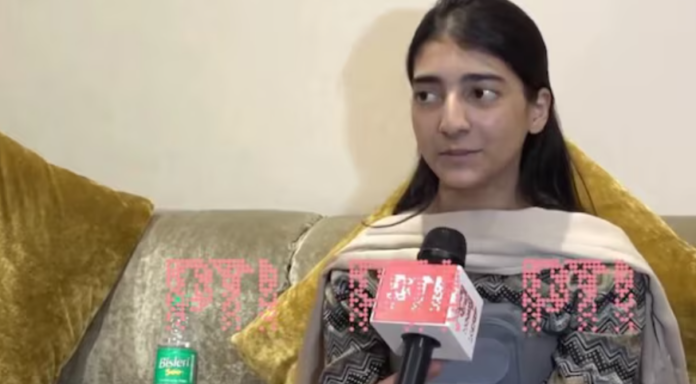The touching tale of a 19-year-old Pakistani girl who received a new lease. On life following a successful heart transplant in India sheds light. On the difficulties experienced by heart patients in the neighboring nation. As well as how borders can be opened up for humanitarian reasons.
At MGM Healthcare in Chennai, Ayesha Rashan from Karachi had a heart transplant. On January 31, 2024, she had a heart transplant. Once a suitable brain-dead donor became available. This month, she was released from the hospital after treatment.
Ms. Rashan first visited the Institute of Heart and Lung Transplant. And Mechanical Circulatory Support in 2019 at the age of 14. When she was diagnosed with serious. Heart failure and a very poorly functioning heart. According to Dr. K.R. Balakrishnan, chairman and director of cardiac sciences.
She had a heart arrest and got quite ill. CPR was performed on her and she was placed on an ECMO machine to maintain circulation. She eventually healed and returned to her home country. After we implanted an artificial heart pump at that time, he said.
“During the following few years, she fell ill once more due to a leaking valve. She experienced severe heart failure on the right side. And an infection, making treatment extremely challenging in that nation,” he continued.
According to Dr. Balakrishnan, it was quite difficult for her to obtain a visa. They have neither money nor resources, and her mother is a single mother. We were responsible for covering every cost, including many hospital stays.
With the help of the Aishwarya Trust, a Chennai-based NGO, and donations. From previous transplant recipients, Ms. Rashan had surgery. After receiving a donor organ from an elderly man from Delhi who was brain dead. The operation was carried out.
“The most significant obstacle was the lack of funds,” he stated. Treatment for the condition cost between 30 and 40 lakhs. “The medical facility is a private one. As a result, we had to raise funds via the trust, our personal assets, and kind patients. That posed a significant challenge. Furthermore, the results of these high-risk operations are unpredictable. However, if we hadn’t, this young girl wouldn’t have survived,” he remarked.
The fashion designer-aspiring Ms. Rashan expressed her gratitude. To the Indian government for granting her a visa so she could travel there for the procedure. According to Ms. Rashan’s mother, Pakistan lacks a facility of this kind. There are more Pakistanis who have. Received heart transplants in India besides Ms. Rashan.
Muhammad Amir, whose name has been changed per his request, was diagnosed. With “dilated cardiomyopathy” in 2014, when he was 37 years old. This disease causes the heart’s chambers to dilate and the muscles to weaken. Making it more difficult for the heart to pump blood to the rest of the body.
Following news that Ms. Rashan had a successful heart transplant in India, Mr. Amir. Now 46, told The News International, “Doctors managed my medical condition. With medication, but they told me an organ transplant was the only cure.”
“In 2014, I received a new heart from an anonymous Indian donor. At a heart transplant center in Chennai, India. Which I found through internet research.” Amir is not the only one. The first Pakistani patient to travel to Chennai. For a heart transplant was Qari Zubair, an imam from Gujrat. Regretfully, he experienced difficulties and passed away.
“As far as I’m aware, about six Pakistanis have had heart. Transplants in India,” Mr. Amir stated, wishing to remain anonymous. The longest survivor is me. After receiving transplants, four more people died, he claimed.
Lack of experience, exorbitant expenses, inadequate post-operative care. And a scarcity of deceased donors are among the main causes. Of Pakistan’s nonexistence of a heart transplant program, according. To a number of transplant and cardiac surgeons.
Renowned transplantation surgeon Dr. Faisal Saud Dar stated. “The two main reasons we don’t perform heart transplants. Are a lack of dead donors [transplant organs can only be taken from deceased persons] and a lack of expertise.” In order to preserve lives, Dr. Dar, dean and chief executive officer of the Pakistan Kidney. And Liver Institute and Research Center in Lahore, emphasized the significance. Of spreading knowledge regarding organ donation after death.
Heart transplants, according to renowned cardiac surgeon Dr. Pervaiz Chaudhry. Should soon be possible in Pakistan. According to the article, he has requested the authorities to define “brain death”. In Pakistan in order to make it easier for deceased people to seek organ donation.
“I know heart transplants are difficult and costly. But it is a significant strain to fly to India for these operations. To save more lives, I wish we had our own centers. Where we could get transplants for free or at a reasonable cost,” he remarked.



